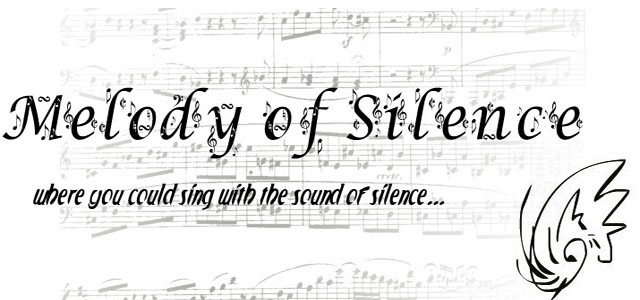These days I'm really in the mood for some classics. One particular classic that I really enjoy is Beethoven's Symphony No 9 "Ode to Joy". This piece has been my favorite classical music since I was still in high school.
I first knew this symphony from the manga "Dragon Voice", by Yuriko Nishiyama that Elex used to publish back then. This symphony was in the final volume, when the protagonist sung it in some kind of World Peace concert, as a song to rally the world into hold hands together in unity and peace. The lyrics has captivated my attention back then, as it was in German, and I was really interested in all things German. By some lucky chance during my trip to Singapore in the year 2004, I found a Beethoven's collection CD that costs only 5 SGD, so I just bought it and take it home. When I arrived home, I played the CD, and skipped right to Track 7, the Symphony No. 9.
I became a fan instantly.
For me, the piece evoked a lot of feelings. It was beautiful, full of freedom, full of hope, energy and peace, and if you close your eyes when listening to it, you can almost feel the grandeur of the orchestra hall, and the culture of the Romantic Age in Europe. OK, I might be waxing rhapsodic about it, but it was what I truly feel about this piece. It was THAT good.
Some people said that music is good when it can arouse people's feelings and emotions, and let people imagine things. This piece did exactly that. It was like a refreshing breeze to me. It enlightens my heart whenever I hear it, and it gives me energy like warm sunlight in the morning. No music has ever done this to me before.
So, I really recommend this piece of beauty to you, my readers. With such a lot of music types in the market right now, sometimes it's good for us to take a look in the past, and enjoy the masterpieces of the great composers of the world. It is a reminder of an era when music is taken really seriously, and carefully made into a masterpiece that stay in popularity for close to 200 years now, a feat which I believe none of the new songs now will ever get close to, considering how the new songs are made, and what they are like.
For the uninitiated, however, I give you a short history of this symphony. It is taken from Wikipedia, with a bit of adjustment here and there.
What is Beethoven's Symphony No 9?
The Symphony No. 9 in D minor, Op. 125 "Choral" is the final symphony of Ludwig van Beethoven. Completed in 1824, the symphony is one of the best known works of the Western classical repertoire and is considered one of Beethoven's greatest masterpieces.
The symphony was the first example of a major composer using voices in a symphony. The words are sung during the final movement by four vocal soloists and a chorus. They were taken from the "Ode to Joy", a poem written by Friedrich Schiller in 1785 and revised in 1803 (of which the 'Ode to Joy' is penned), with additions made by the composer.
The symphony is in four movements, marked as follows:
2. Scherzo: Molto vivace - Presto
3. Adagio molto e cantabile - Andante Moderato - Tempo I - Andante Moderato - Adagio - Lo Stesso Tempo
4. Recitative
Beethoven changes the usual pattern of Classical symphonies in placing the scherzo movement before the slow movement (in symphonies, slow movements are usually placed before scherzi). This was the first time that he did this in a symphony, although he had done so in some previous works (including the quartets Op. 18 no. 5, the "Archduke" piano trio Op. 97, the "Hammerklavier" piano sonata Op. 106). Haydn, too, had used this arrangement in a number of works.
Beethoven's Ninth Symphony was an influence on the development of the compact disc. Philips, the company that had started the work on the new audio format, originally planned for a CD to have a diameter of 11.5 cm, while Sony planned a 10 cm diameter needed for one hour of music.
The Ninth Symphony in the Modern Age
During the division of Germany in the Cold War, the Ode to Joy segment of the symphony was also played in lieu of an anthem at the Olympic Games for the Unified Team of Germany between 1956 and 1968. In 1972, the musical backing (without the words) was adopted as the Anthem of Europe by the Council of Europe and subsequently by the European Communities (now the European Union) in 1985.[19] In 1985, the European Union chose Beethoven's music as the EU anthem.[20] When Kosovo declared independence in 2008, it lacked an anthem, so for the independence ceremonies it used Ode to Joy, in recognition of the European Union's role in its independence. It has since adopted its own anthem. Additionally, the Ode to Joy was adopted as the national anthem of Rhodesia in 1974 as Rise O Voices of Rhodesia.
I'll write about the vocal parts, the "Ode to Joy" in a separate post, because it was a poem, (or a lyric), and I prefer to keep that kind of things separate from a prose styled writing like this.
I'll also include the link to my Symphony No 9 upload in the next post. It is currently uploading right now, and it will take about an hour or so to complete..
See you in next post!






No comments:
Post a Comment